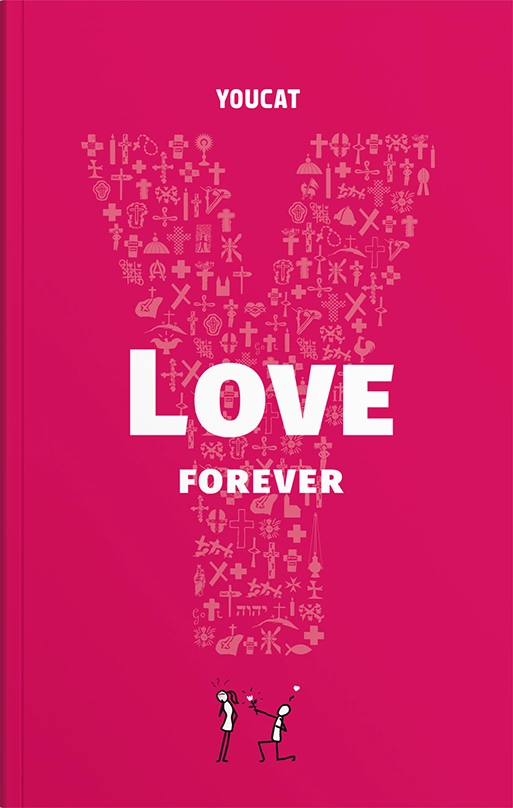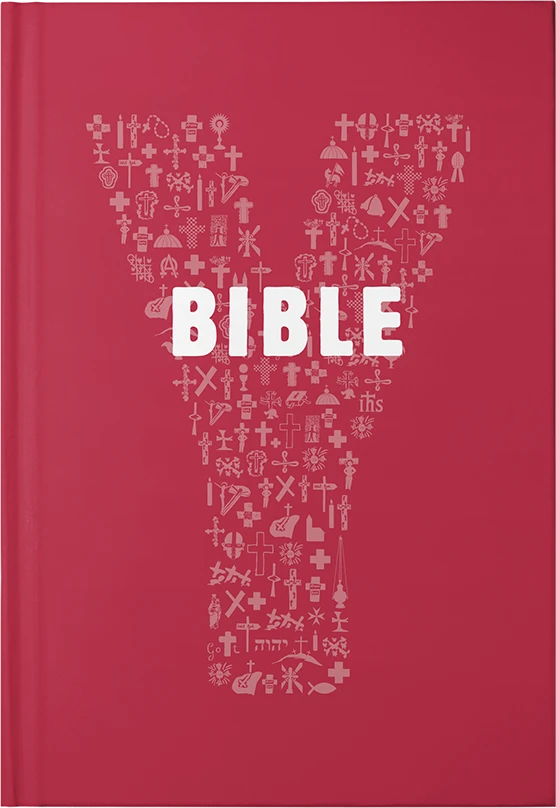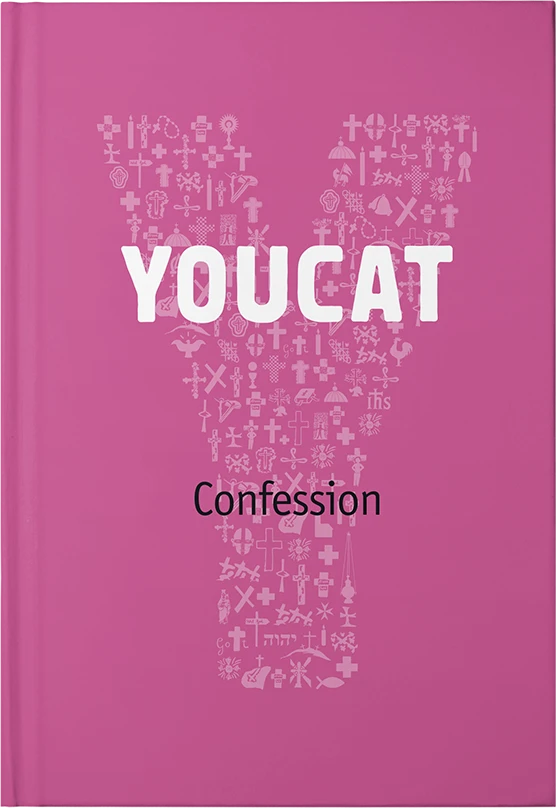

Credopedia
Lie
Lies born of necessity or spoken in jest, the spreading of rumours, defamation, lying omissions, and exaggeration also violate the commandment of truthfulness.
What is the lie?
A “lie” is a deliberately false statement (which is why a “mistake” alone does not constitute a lie). YOUCAT 452 states, “Lying means consciously and intentionally speaking or acting against the truth. Someone who lies deceives himself and misleads others who have a right to know the full truth of a matter.” One can lie with words, but also with the body; thus YOUCAT 403 states, “People who look for sex without love are lying because the closeness of their bodies does not correspond to the closeness of their hearts.”.
Lie “is a way of violence” (YOUCAT 452); it destroys any community in the beginning because the liar can no longer be trusted. Calling God when one is lying is especially reprehensible. “God,” says YOUCAT 359, ” is absolute truth. Someone who calls Truth himself by his name but uses it to testify to a lie sins seriously.”
Christians are obligated to “bear witness to the truth”, following Christ in this, who said before Pilate, ‘For this, I was born and for this I came into the world, to testify to the truth. Everyone who belongs to the truth listens to my voice.’ (John 18,37). This can even mean that a Christian lays down his life out of fidelity to the truth and love for God and mankind. This ultimate form of commitment to the truth is called martyrdom.” (YOUCAT 454). Lies born of necessity or spoken in jest, the spreading of rumours, defamation, lying omissions, and exaggeration also violate the commandment of truthfulness.
What does the Holy Bible say?
Jesus calls the devil “the father of lies” (John 8,44) Already in the Old Testament, lies appear as signs of basic evil. The psalmist prays, “Lead me from the way of deceit; favour me with your law.” (Ps 119,29). That is why the prohibition against lying (“You shall not bear false witness against your neighbour.” Ex 20,16) is found as the eighth in the Ten Commandments.
False testimony, Dt 19,19 demands, is to be punished by the harshest means: “Thus shall you purge the evil from your midst.” Jesus reiterates the commandment of truthful speech: “Let your ‘Yes’ mean ‘Yes’, and your ‘No‘ mean ‘No’; anything more is from the evil one.” (Mt 5,37). Those who want to belong to Jesus cannot at the same time remain in false states: “If we say, “We have fellowship with him,” while we continue to walk in darkness, we lie and do not act in truth.” (1 John 1,6). Thus the apostle exhorts those who have come to faith: “[…] that you should put away the old self of your former way of life, corrupted through deceitful desires […] Therefore, putting away falsehood, speak the truth, each one to his neighbour, for we are members one of another.” (Eph 4, 22.25).
On the day of judgment, when the 144,000 who followed the Lamb are called before the throne, they will be recognized by a certain criterion: “On their lips no deceit has been found; they are unblemished.” (Rev 14,5)
A short YOUCAT-Catechesis
I have only one fault: I lie.
All people have something to hide. Basically, they know that it does not work very well. In a satire by Wolfgang Hildesheimer, someone has fun calling all kinds of people from the neighbourhood one by one: “Listen, everything is discovered …” – “What, everything …?” – “Yes, everything! … Flee!”
Little by little, the lights go out in the neighbourhood. Those called seek their salvation in flight. No one can trust anyone. We all have something that we don’t want anyone to know about. Wouldn’t it be terrible if we were discovered with our life lies?
The normal madness of lying
A little bit of cheating is part of the business, many say – and are surprised when half-truths and completely false statements are part of the little basics in politics. It is considered quite normal when statistics are ideologically doctored or studies are ordered with desired results. One makes common “language regulations” and knows exactly that it is a socially accepted form of lie. “Don’t trust any balance sheet that you haven’t falsified yourself” winks two to each other, who have given reality a bit of a jolt. The result, the success must come! That is above all.
To get a grip on things, you need a good strategy, that is, a battle plan. By the way, the word “strategy” comes from ancient Greek and means “commander” there. Now strategies are not evil in themselves; in fact, having a strategy is a sign of prudence and thoughtful action.
No trader, no business enterprise can do without a strategy. But in the long run, the relationship between all those who want something from each other is based on a single word: trust. Jean-Paul Getty, who was once the richest man of his time, is reputed to have said, “If you can trust a man, there is no need for a contract. If you can’t trust him, a contract is useless.”
There is no right life in the wrong one
If someone tells you, “I have only one fault: “I lie,” you will not enthusiastically fall around his neck because he is very close to perfection. You can’t trust him. He could have lied and in truth have all the faults of this world in him. With such a person no friendship, no contract, no love relationship, no business, no appointment, no conversation is possible. The common would have no basis. “There is no right life in the wrong one,” the philosopher Adorno once said, in his “Minima Moralia.” I would always have to fear being ripped off.
The fluid transitions in which truth is sacrificed for the sake of utility have crept into our everyday lives in both large and small ways. And this is fatal, because with every wink of the eye, with every acceptance of incorrect language or incorrect relationships, the whole society becomes more and more permeated by a web of lies, until you get to the point where everyone is only tinkering with their truth, which they assert with cunning and trickery. Those who give their hand to lies and corruption become liars and corrupt themselves. And when this happens in the Church, we are facing the abyss that is just opening up in the abuse crisis.
How can trust be restored?
But how does trust come back into the world? By there being more and more people who lay down their arms and show themselves as they are: weak, vulnerable, erring, entangled in sin, not quite presentable. Such people are an invitation to others to also free themselves from their fake identity and to show themselves as they are: weak, vulnerable, erring, entangled in sin, not quite presentable.
Christians have a knowledge advantage: they are aware that they are “discovered”. There is God – “Where can I go from your spirit?” (Ps 139,7) Where would be the place between heaven and earth where one could be safe from the truth? Before God, I cannot dress up my life; in the plural: … we cannot gloss over our circumstances. The comforting thing is that God illuminates us, but does not burn us.
My Christian faith makes it easier for me to be authentic and find my true life. Piece by piece, I can break the eggshells of my lying identity and come into the daylight of God. My strength would not be enough to do this. But I am invited to join the one who broke the chain reaction of I-lie-you-lie. “For this, I was born and for this I came into the world, to testify to the truth.” (John 18,37). Truth is just another name for God. God is the truth – as He is the light. Completely transparent. Without contradiction.
Now we are called in darknesses and contradictions of entanglement to come into contact with this very God, even to unite with Him. Christ came to work off our lies, to reconcile us with God. Pure we stand. We liars, we fugitives from the truth, from God and ourselves – we have all “[…] become near by the blood of Christ.” (Eph 2,13). There is no more reason to lie and no more reason for the cover-up. And then Konrad Adenauer recommended: “You should always tell the truth because someday you won’t be able to remember your many lies.”

YOUCAT Digital
Discover our digital products, which will help you to grow in faith and become missionaries yourself.







